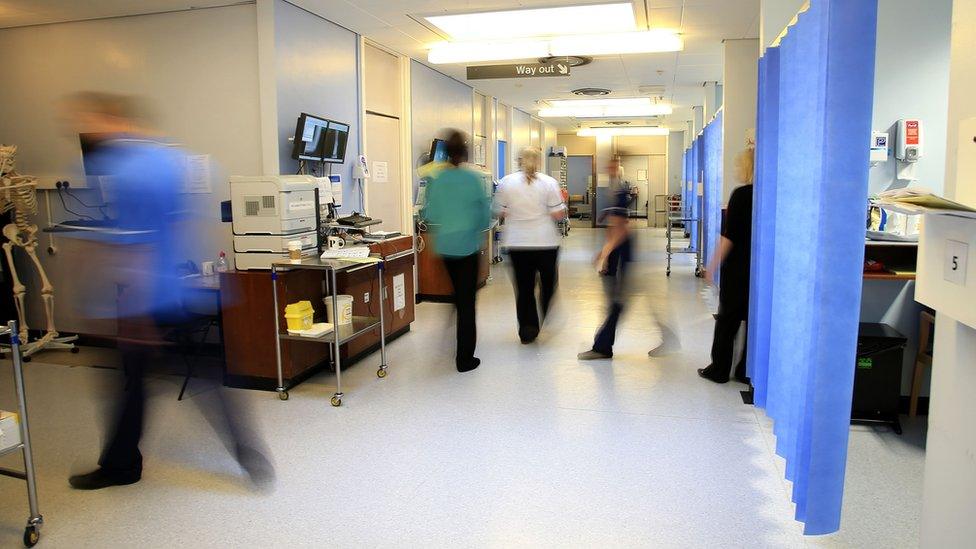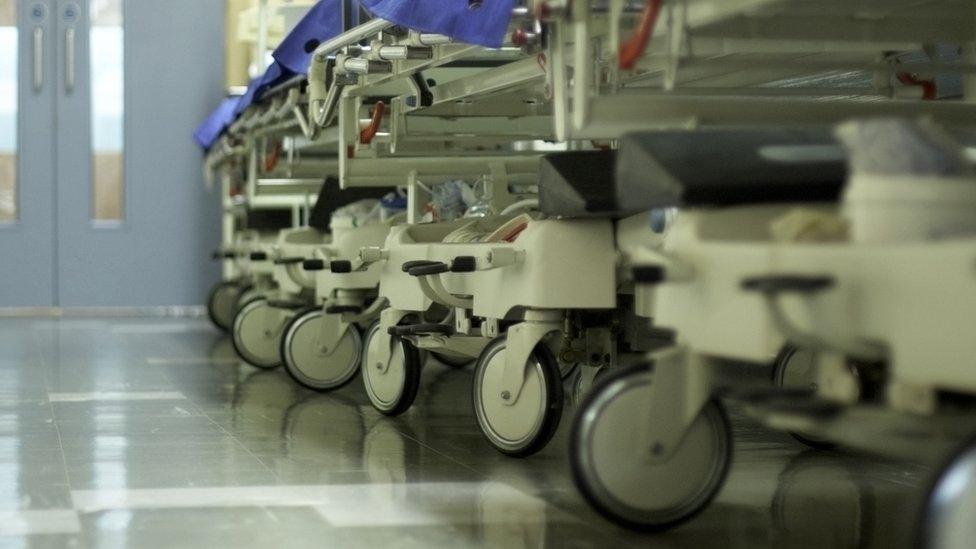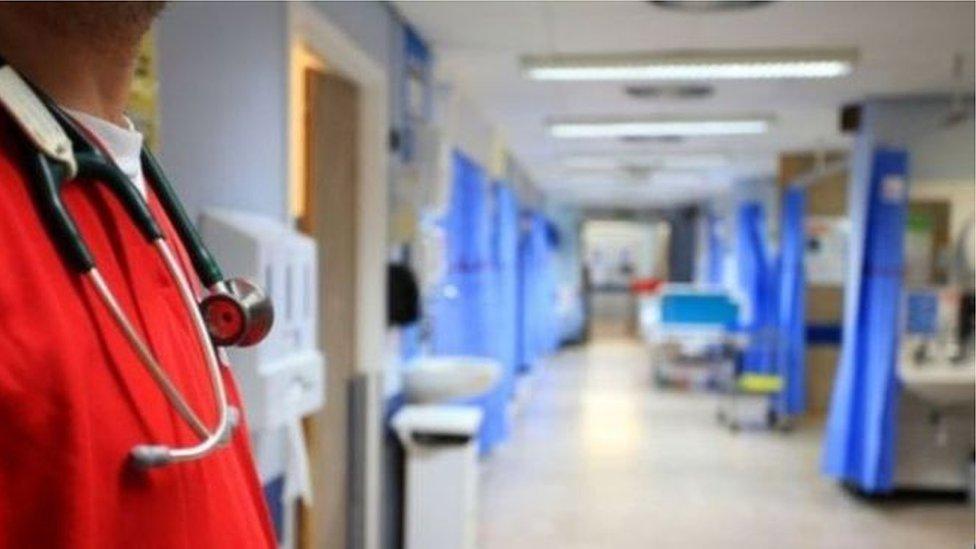Nurses' pay: Talks over NI strike end without agreement
- Published

Nurses voted to take the action by an overwhelming majority with the result announced on Thursday.
Northern Ireland's health unions have said talks with Stormont's Department of Health about nurses' pay have finished on Friday without agreement.
On Thursday nurses in Northern Ireland voted to strike over staffing numbers and pay disputes.
It was the first time in the Royal College of Nursing's (RCN) 103-year-history that such action has been taken in the UK.
Talks about the pay dispute have been ongoing for eight months.
In a ballot that lasted four weeks, nurses were asked if they were willing to take industrial action, including strike action.
Pay discussions have involved all of the health unions in Northern Ireland, including the RCN.
'Formal pay offer'
The Department of Health said discussions with trade unions had taken place and it hoped there would be more engagement in the days ahead.
"Subject to further engagement with union colleagues next week, we hope to move towards tabling a formal pay offer very shortly," added the department.

There are almost 3,000 unfilled nursing posts across the system in Northern Ireland
A spokesman for the trade unions said there was "no basis" in the department position for a new round of talks.
"We have already sat in rooms with the department and employers for eight months without resolution," he added.
"What we have heard today will anger our very hard-working and dedicated health and social care staff who are already under significant pressure to deliver safe and effective care to the population."
The unions' chair Kevin McAdam, said health bosses had a responsibility to "ensure safe staffing levels and patient safety and deliver pay justice".

Healthcare pay problem - the story so far
Analysis by Marie-Louise Connolly, BBC News NI health correspondent
The problem of pay and funding for nurses goes back to around 2010.
A series of cuts to nursing places, nursing bursaries and then changes to pay that did not fall in line with the rest of the UK has had massive consequences.
At the helm five health ministers - the Ulster Unionist Michael McGimpsey, Edwin Poots, Jim Wells and Simon Hamilton of the Democratic Unionist Party (DUP), followed by Sinn Féin's Michelle O'Neill.
While changes to policy was in the hands of ministers, decisions about saving money were rubberstamped by the Stormont executive.
Things stepped up a gear in 2015 when Mr Wells, proposed pay changes for healthcare workers that created a differential between here and the rest of the UK.
In 2016, an imposed 1% pay award by Mr Hamilton almost triggered industrial action.
Then in 2017, Westminster agreed a pay deal that guaranteed an increase over three years for workers but unlike elsewhere in the UK that wasn't implemented in Northern Ireland.
Since the Northern Ireland Assembly fell in 2017 talks have been ongoing between the health unions and the Department of Health's permanent secretary Richard Pengelly.
To date little has been agreed, with the RCN voting to strike and other unions also balloting their members on what action to take.
- Published10 September 2018

- Published5 September 2018
